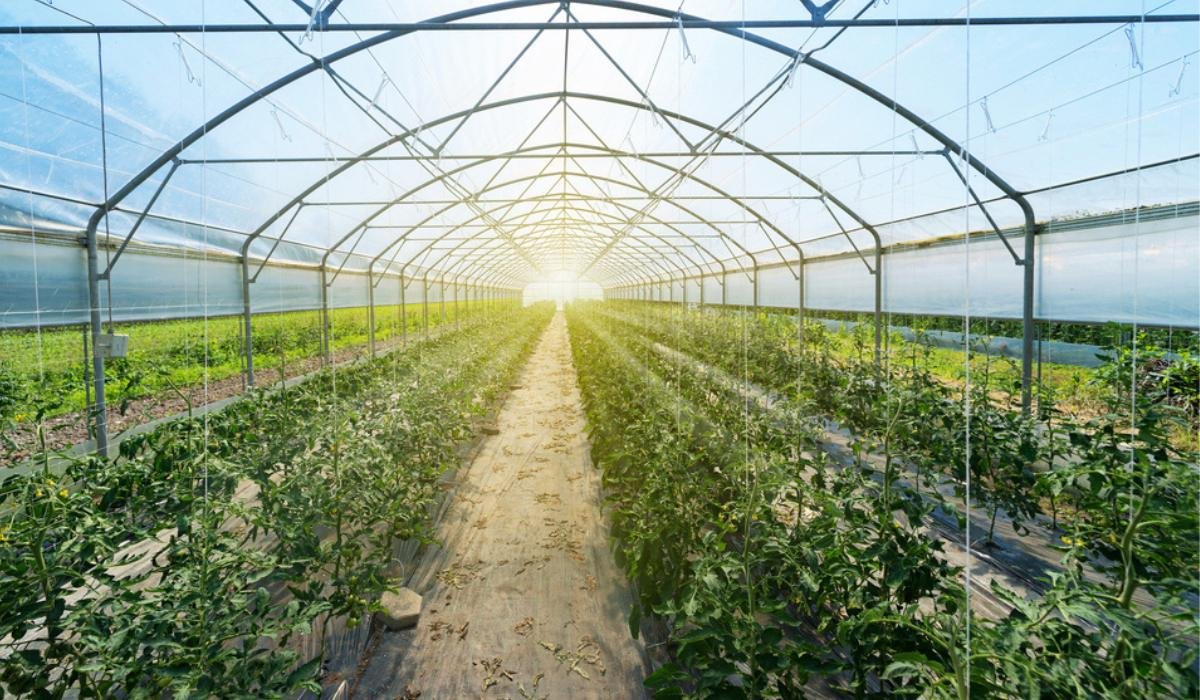Greenhouse Farming: Optimizing Plant Yields and Sustainability
With managed atmospheres and lowered water usage, greenhouse farming supplies the perfect solution for year-round production of fresh fruit and vegetables. Discover the benefits of greenhouse farming and start enjoying the benefits today!
Advantages of Greenhouse Farming
Are you questioning what makes greenhouse farming so useful? Well, let me tell you! One of the significant advantages of greenhouse farming is the capacity to control the setting in which crops are grown. With a greenhouse, you can manipulate variables like humidity, light, and temperature to enhance plant growth. This suggests that you can grow crops throughout the year, despite the weather outside.
One more advantage of greenhouse farming is the decrease in water use. Greenhouses are designed to be water-efficient, with systems that recycle and record water, reducing waste. This is particularly important in locations where water scarcity is a problem. By utilizing water much more efficiently, greenhouse farming helps to preserve this priceless resource.
Furthermore, greenhouse farming enables much better insect and condition management. With the controlled setting, it is easier to prevent and control the spread of insects and diseases. This lowers the requirement for hazardous pesticides, making greenhouse-grown crops more secure and much more ecologically pleasant.
In addition, greenhouse farming gives protection versus severe climate occasions. Plants expanded in greenhouses are secured from hefty rain, solid winds, and hailstorms, which can harm or damage exterior plants. Monarch Residential Greenhouse Utah. This defense guarantees a more trustworthy and steady plant yield, even during unforeseeable climate conditions

Maximizing Crop Yields With Controlled Settings
To make the most of plant yields in greenhouse farming, you can attain optimal outcomes by regulating the setting. One of the vital benefits of greenhouse farming is the capacity to regulate these ecological aspects, permitting you to tailor them to the particular requirements of each crop. By applying these controlled settings, you can maximize crop returns and accomplish consistent, top quality produce throughout the year.
Supporting Sustainability Via Greenhouse Farming
Make the most of sustainability in greenhouse farming by implementing effective resource administration techniques. One essential aspect of advertising sustainability is the administration of water use. By applying systems such as drip watering and recirculation, you can considerably decrease water wastage and make certain that every drop matters. In addition, making use of biodegradable and natural products for insect control and fertilizing can aid reduce environmental influence. Integrated Pest Monitoring (IPM) methods, as an example, entail making use of useful insects to regulate parasites, lowering the requirement for hazardous chemicals. Energy consumption can be minimized by utilizing eco-friendly energy resources, such as solar panels, to power greenhouse operations. This not just decreases dependence on nonrenewable fuel sources yet also decreases greenhouse gas emissions. Correct waste management is an additional essential component in promoting sustainability. Carrying out recycling and composting systems can reduce the amount of waste sent out to landfills while likewise providing nutrient-rich compost for plant development. Lastly, including lasting techniques in greenhouse design, such as using energy-efficient materials and maximizing all-natural lighting, can additionally boost sustainability. By adopting these resource monitoring strategies, you can contribute to a much more sustainable future in greenhouse farming.
Decreasing Water Usage in Greenhouse Farming
By carrying out effective water administration strategies, you can dramatically reduce water use in greenhouse farming. Water is an important resource in agriculture, and preserving it not only benefits the atmosphere but also helps to make the most of crop yields and earnings. One efficient method to reduce water use is via the usage of drip watering systems. These systems deliver water straight to the plant's origins, reducing evaporation and ensuring that every decline is try these out made use of efficiently. In addition, surveillance and managing the humidity degrees inside the greenhouse can stop unnecessary water loss. By utilizing sensing units and automated systems, you can readjust the ventilation and watering as necessary, enhancing water usage based on the particular needs of your crops. One more method is to catch and recycle rain. Accumulating rainwater from the greenhouse roof and saving it in tanks permits you to supplement your irrigation requires without depending exclusively on freshwater sources. Furthermore, applying mulching methods can aid maintain soil dampness, minimizing the regularity of irrigation. Mulch function as an obstacle, avoiding water dissipation and maintaining the soil cool and moist. By embracing these water-saving techniques, you can reduce water waste, preserve resources, and produce a more lasting future for greenhouse farming.
Year-Round Production of Fresh Create in Greenhouses
Greenhouses provide a controlled setting that allows you to grow crops no matter of the external weather condition problems. Greenhouses can japanese sedge be geared up with home heating and cooling down systems to preserve optimal temperature levels for various crops. By executing these strategies, you can take full advantage of the performance of your find out here now greenhouse and delight in a consistent supply of fresh generate all year long.

Conclusion
In conclusion, greenhouse farming provides many advantages for taking full advantage of crop returns and promoting sustainability. Additionally, greenhouse farming permits for minimized water use, making it an ecologically friendly selection.
One of the major advantages of greenhouse farming is the capability to regulate the environment in which crops are expanded.To optimize crop returns in greenhouse farming, you can accomplish optimum results by controlling the setting. One of the essential benefits of greenhouse farming is the capability to manage these environmental variables, enabling you to customize them to the specific requirements of each crop.By applying efficient water monitoring techniques, you can considerably decrease water use in greenhouse farming.In conclusion, greenhouse farming supplies countless advantages for maximizing crop yields and advertising sustainability.